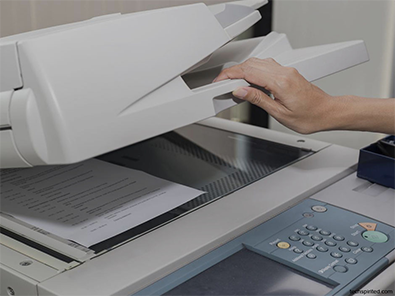New Ricoh-commissioned study by independent consulting firm reveals pervasive gap
between customers’ expectations and the experience employees can actually deliver
TOKYO, Jan. 8, 2014 – Much has been said about the decline of customer service, but it’s especially unfortunate when customer-facing employees desperately want to please – yet can’t.
This appears to be the case for nearly 9 in 10 (89 percent) of customer-facing employees – e.g., bank clerks, call center operators, nurses, bank managers and shop supervisors – who in a new Thought Leadership Paper1 commissioned by Ricoh Company, Ltd., and conducted by Forrester Consulting, said there’s a gap between the experience they can deliver and the experience the customer expects.
“We intuitively understood that less-than-optimal customer service experiences are often traceable to inferior business information workflows,” said Yoshi Sasaki, General Manager, Business Services Center, Business Solutions Group, Ricoh Company, Ltd. “In many cases, customer-facing employees are simply too preoccupied trying to find the right information and hampered by working with outdated systems to deliver a personalized, human-to-human experience. We wanted to investigate the problem, and measure it, to help organizations better define and improve their customer service strategies.”
The research found that customer-facing employees, who constitute more than half of the workforce, are critical for companies fighting to emerge from the recession. Unfortunately, gaps in supporting document processes waste time that could be spent personalizing the customer experience – a failure that imposes a significant opportunity cost on business.
In fact, nearly 1 in 4 managers (23 percent) said poor document services support was a major limitation slowing the effectiveness of customer-facing employees in their organizations. More than 1 in 4 managers (26 percent) cited poor information access as a major limitation.
Companies that invest in collaboration, instant messaging, mobile solutions and flexible workplaces make customer-facing workers more efficient and free up more time for them to provide the missing personalized service, according to the study. This assumes companies support these investments with the underlying document processes and systems required to maximize these types of technology.
- 1 A Forrester Consulting Thought Leadership Paper Commissioned By Ricoh, “The New Workplace Reality: Enterprises Must Capture The Soul And Spirit Of The Emerging Worker”, December 2013
But today, many workers are spending too much time on mundane tasks such as data entry and have trouble with a wide range of activities, including finding facts quickly, creating documents, editing, writing, processing information, solving complex exceptions, and leveraging mobile solutions, according to the study. “As a result, they are not actively engaged with their customers,” it states. “It is by supporting these employees through improved document and process support that organizations will be in a stronger competitive and revenue-driving position.”
Explaining the gap
At the heart of the problem is outdated technology that is often inferior to that used by the customers on the other end of the interaction.
More than one-third of managers (36 percent) said their organizations struggle to have the newest technologies, and more than 1 in 4 managers (27 percent) said there’s a growing gap between their customers’ use of technology and what their customer-facing workers are equipped with. Not surprisingly, information access suffers.
This research, detailed in a study called “The New Workplace Reality: Enterprises Must Capture the Soul and Spirit of the Emerging Worker,” is based on an online survey by Forrester of 250 global customer service strategy and operations decision-makers, as well as customer-facing individual contributors, between March 2013 and May 2013.
To download the study, mds.ricoh.com/thoughtleadership
About the Process Imperative
Ricoh’s Process Imperative is an ongoing initiative to promote understanding of new document and information processing paradigms that help enterprises leverage the collective wisdom embodied in their organizations. This initiative will fund research and provide resources, like those found on this site, which combine Ricoh’s document and information process expertise with that of industry visionaries, its partners and customers. The insights gained through this work help businesses transform their business processes to improve productivity and drive out cost by delivering the right information, at the right time, in the right form.
Ricoh is uniquely equipped to assist its customers execute a comprehensive strategy for document process improvement that helps reduce costs and potentially increase revenue through its Managed Document Services approach. To learn more about Ricoh’s approach to Managed Document Services and for free information and guidance – including case studies, white papers and videos – visit Ricoh Global MDS (www.ricoh.com/mds).


